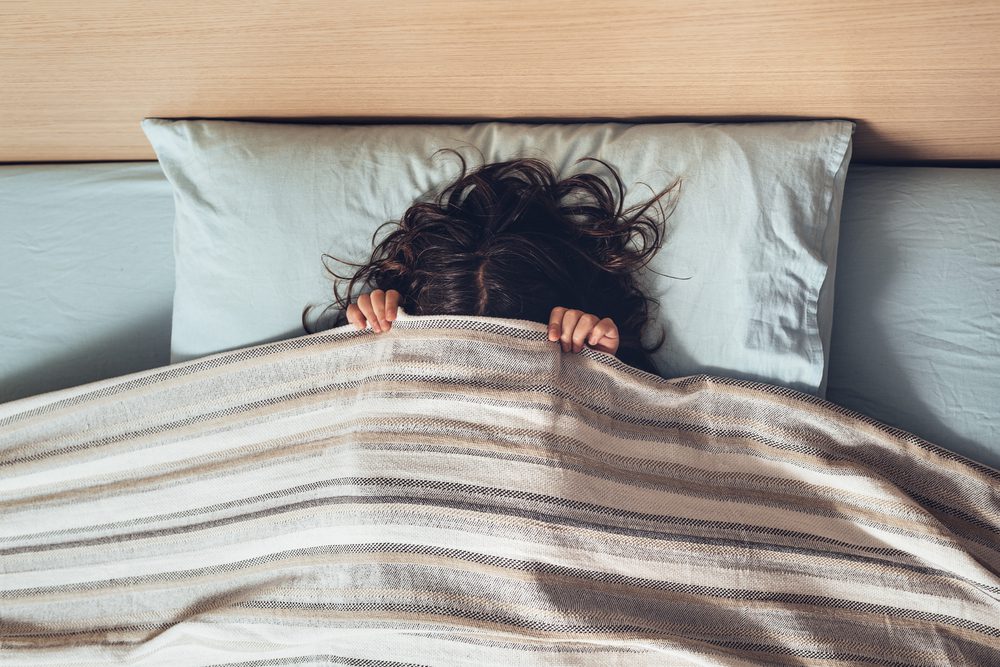As you fall asleep, functions in your body change. Your breathing and heartbeat slow down and your muscles relax. During this transition from wakefulness to sleep, otherwise known as the hypnagogic period, you may experience small muscle twitches. If you have ever wondered why you twitch when you fall asleep, the answer is likely hypnic jerks.
Key Takeaways
- Hypnic jerks are sudden muscle movements that can occur when falling asleep.
- Also known as sleep starts, occasional hypnic jerks are common and harmless.
- The exact cause of hypnic jerks is unclear, but theories link them to nerve reflexes and brain misinterpretations.
- Seek advice from a sleep specialist if hypnic jerks frequently disrupt your sleep.
What Are Hypnic Jerks?
Hypnic jerks are sudden muscle contractions that occur on the threshold of sleep. Also known as hypnagogic jerks or sleep starts, they can occur spontaneously or represent an involuntary response to external stimuli. The general term for this family of short-lived involuntary muscle twitches is myoclonus, a term that also includes other well-known reflexes such as hiccups and sneezes.
Although they are more common in adults, hypnic jerks can happen to anyone at any age. It is thought that between 60% and 70% of people occasionally experience these sleep starts.
What Does a Hypnic Jerk Feel Like?
Hypnic jerks can affect the whole body or segments of the body, often with a focus on one side. Typically you experience only one contraction, though in some cases you may experience a few in a row. You might sleep through a hypnic jerk, or the event may startle you awake. After a powerful sleep jerk, some people may experience a racing heart, irregular or fast breathing, or sweating.
Along with the contraction you may also experience a sensation of falling, tingling, or pain. Sometimes auditory or visual sensations can accompany sleep jerks, such as banging sounds or flashing lights.
Other people experience hypnagogic hallucinations during a sleep start. These hallucinations can include colorful and detailed images ranging from geometric patterns to faces of animals or humans.
Frequent or intense hypnic jerks can interfere with falling asleep. These sensations may also feel unnerving and for some people, they may trigger anxiety about falling asleep.

What Causes Hypnic Jerks?
Researchers are still investigating the exact mechanisms behind hypnic jerks. Some hypothesize that nerves in the legs or hands incorrectly send signals as you fall asleep, which triggers a jerking movement. Another common hypothesis is that the brain misinterprets the muscles relaxing as the body falling, so it signals your muscles to twitch. Others believe that hypnic jerks may be deliberately provoked by the brain in response to hypnagogic hallucinations.
While hypnic jerks are a naturally occurring behavior, certain triggers that interfere with sleep may increase the frequency of the episodes:
- Sleep Deprivation: Sleep is essential for your health and ability to function normally. If you are sleep-deprived, you may experience more frequent or more intense hypnic jerks.
- Stress and Anxiety: Stress can make falling asleep difficult. In some cases, people may develop anxiety because of hypnic jerks, which contributes to sleep deprivation. In turn, sleep deprivation has the potential to increase the frequency of hypnic jerks.
- Intense Exercise Before Bedtime: Exercising too close to bedtime is associated with a higher risk of hypnic jerks.
- Caffeine: Caffeine can cause both insomnia and anxiety if consumed in large amounts, and may increase the risk of hypnic jerks.
- Other Drugs: Stimulants other than caffeine can also increase the frequency of sleep starts.
Can Hypnic Jerks Be Dangerous?
Most hypnic jerks are considered harmless, although sometimes a twitch may cause you to accidentally kick a bed partner or a nearby object.
If you frequently experience hypnic jerks, you may start to develop fear or anxiety about going to sleep. These fears may lead to sleep deprivation. Intense and frequent sleep starts can also cause insomnia, either because of the interrupted sleep or anxiety about sleeping.
Tips for Preventing Hypnic Jerks
Practicing good sleep hygiene may help reduce the frequency of hypnic jerks. Examples of productive sleep habits include:
- Keeping a regular sleep-wake schedule
- Getting enough sleep each night, at least 7 hours for adults
- Limiting caffeine consumption, especially in the afternoon and evening
- Exercising regularly and planning your exercise routine so you are finished at least three hours before bedtime
- Creating a comfortable sleep environment without distractions
When to Talk to a Doctor
Hypnic jerks are generally considered a normal part of falling asleep and do not typically require treatment. However, you may want to talk to your doctor if sleep starts are disrupting your sleep or causing anxiety.
Your doctor can conduct further tests to see if your muscle twitches could be due to another condition, such as restless legs syndrome or epilepsy. Based on their findings, they can help you treat any existing health conditions and learn ways to manage hypnic jerks.
References
Ask the Sleep Doctor
Have questions about sleep? Submit them here! We use your questions to help us decide topics for future articles, videos, and newsletters. We try to answer as many questions as possible. You can also send us an email. Please note, we cannot provide specific medical advice, and always recommend you contact your doctor for any medical matters.






